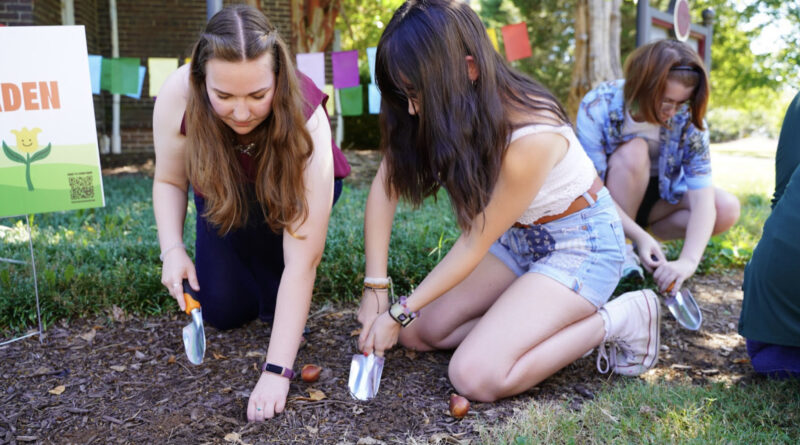Maryville College Plants Hope
Mental health is an unseen entity that affects a large majority of the population. Although mental health issues are invisible, they are no less important than ailments that are physical. Historically, there has been a stigma surrounding mental health that makes it more difficult for students to seek the mental support they need. Thanks to Maryville College’s most recent event, “Planting Hope,” several of the school’s divisions are all taking action to tear down the barriers and create important discourse on the topic of mental health.
On Tuesday, Oct. 3, the Counseling Center, in conjunction with the Campus Center for Ministry, the Disability Resources and Accessibility Center and Fit.Green.Happy held “Planting Hope” in coordination with the nationwide “Yellow Tulip Project,” which encourages students who are struggling to remember they are not alone.
Students gathered around the Center for Campus Ministry, wielding paint brushes and gardening tools. There was a positive energy in the air, evident from the smiles on attendees’ faces.
Students and faculty planted yellow tulips as a symbol of hope and a reminder to look toward the future. Kelly Hawk-Fitzgerald, director of Disability Resources and Accessibility, said her office works to create a positive college experience for all students.
“Talking about mental health and reducing stigma is crucial to making sure that mental health is treated correctly, and just to make sure that people understand that they matter.”
During the event, attendees were encouraged to paint stones with uplifting messages, which were later placed around campus.
Sophomore Megan Cooper has worked with the Counseling Center since her first year, and played a large role in the organization for “Planting Hope.”
“We’re hoping to not only bring students together to do something creative outside in the sun, but we’re also hoping to really start a conversation on campus about suicide awareness and how we can really lift each other up and provide hope for each other,” Cooper said.
The Yellow Tulip Project works on a national scale as well. Hawk-Fitzgerald explained that by planting the tulips on the Maryville College campus, the hope is for the school to be on the map during the nationwide campaign.
According to the project’s website, the campaign was started by a college student who witnessed her closest friends die by suicide at 15 years old. The founder recognized a need for open support of mental health and decided to start the project with her mother.
The hope for this event is to give students the courage to speak out about what they need, while providing confirmation that their requests will be heard. There are plans to hold another event in the spring, when the tulips have bloomed, according to Hawk Fitzgerald.
She highlighted how much the conversation surrounding mental health has grown with Gen Z, specifically in how students’ freely speak about their struggles more than they historically would.
“Our Maryville College students care so much about mental health and accessibility that I think if anybody’s got the power to change the way this works, it’s going to be y’all,” Hawk Fitzgerald said
Hawk-Fitzgerald encourages students to reach out to her with questions. She is reachable by email at [email protected] or in her office in the basement level of Thaw Hall.

